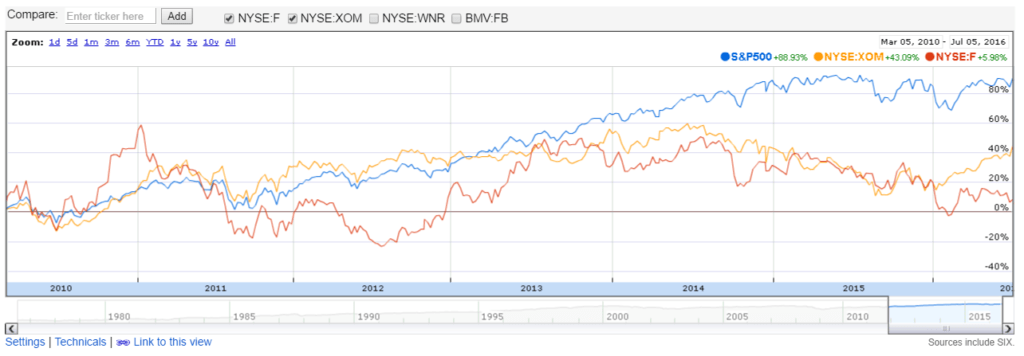Why you can’t beat the market with individual stocks
We all have met the physician that no matter what topic is brought up, always seems to have not only an opinion, but also wants everyone to know that they appear to know a great deal about the topic. There are lots of phrases to describe this person: The “one upper”, the “know-it-all”, or the “expert-in-everything” physician. This sometimes grandiose belief extends into in investing realm. Some doctors want you to believe that they are an expert in picking certain stocks that are undervalued and about to jump in price. Just because a physician may be an expert at hypertension or surgery, by no means extends to be able to pick stocks that will beat the S&P500. This post will explore why doctors can not beat the market by mainly owning individual stocks. Disclaimer: I do believe that owning individual stocks can have its place in ones well diversified portfolio that has excellent asset allocation and keeps individual stocks to a low percentage of overall holdings.
My introduction into individual stocks began in 2010. This is important as my individual stocks have not yet been through a significant down turn. At the time I placed some of my free money into index funds and was initially not considering stocks. Then, my brother told me that I should buy several individual stocks to learn how to value companies and figure out for myself why buying individual stocks usually under-performs in the long run compared to index funds. I took his advice to heart since I have a great deal of respect for my brother. After all, he at the age of 32 helped take a company he co-owns public on the stock exchange.
With the size of my portfolio (less than 100k) I think almost everyone would advocate against owning individual stocks. However, I will argue that owning these stocks taught me an expensive lesson early on before I started investing “attending” money in the market. In a way, I am looking at my under-performance as a “stupid tax” lesson early on that has allowed me to greatly appreciate a well diversified portfolio.
Why Buying individual stocks as a significant percent of ones portfolio is a losing game
Researching stocks takes a lot of effort
Taking the time to learn about a stock by looking up all the public data available, researching the trends, and formulating a theory about what the future holds for the stock is not only a guessing game but takes a lot of time to try and do well. There are numerous blogs and millions of website hits on google about how to value stocks. With all these so called experts out there, one has to wonder why most people still do very poorly at picking stocks. This is because it’s very hard and not everyone can pick individual stocks like Warren Buffett. The time required to value a company is something that many usually do not have, not to mention the lack of skill. I do overall belive that learning how to value a stock is a good quality to have and one that everyone should understand. this will help when investing in the market, because after all these index funds are made up of lots of stocks.
Owning single stocks takes thick skin
Buying a single stock can be a huge risk. The company can be one scandal away from years to decades of poor returns. One scandal such as the scandal when Volkswagen falsified emissions, or the E coli outbreak at Chipotle, or Enron has the ability to sink your stock and potential of any good returns any time soon or ever. Owning a stock with the intent to beat the market and create a portfolio with exceptional returns will most likely lead to heartbreak, especially in a recession.
Potential for lost opportunity at a more stable or better investments
Owning a single stock takes away from placing money into a diversified fund that has better potential to grow in the long term or avoid huge pitfalls during a recession. There is always the possibility of tax loss harvesting but there are limits to what can be deducted every year and either way one would have been better in a diversified fund or even bonds. If one is going to own stocks, keep it to a small part of your portfolio as what many people would describe as “play money.”

Its impossible to time the market
There is no telling where a stock may go but as Jim Cramer once said, with some stocks we are glad they can only go to zero. There is no one who can predict what the stock market can do. No paid site, no report on any of the trading platform can tell you where the stock will go. There seem to almost always be some report wiling to give their guess of where the stock will be in 12 months. In my anecdotal experience they have almost never been right. Don’t try to time the market, especially if you have years or decades for your investments to grow.
Everyone talks about the winners, but rarely do we talk about the dogs
One of the attending physicians at my residency when discussing his stocks would always lead with how much he loves apple and got into the stock before the large rise in stock price. I’m glad that he made a lot of money off a currently excellent company, but not talking about the other investments he had is doing others a disservice. This is something that he has often left out. He fails to mention that the other stocks that he owned, several of which many would classified as penny stocks, have gone bankrupt. Good single returns in a stock are great, but don’t hang your hope on one of your stocks to all of a sudden be worth 100 times what it was 2 years ago.
It would be nice for me to focus on how well my investment did in WNR in the past (bought at $4, sold at $33). However, that would leave out the time I lost money on BBY, F, and other stocks. Overall, when I calculate my rate or return vs the S&P 500 or other index funds I have, I realized that overall those individual stocks under preformed the market by about 3 %.
Fees add up
Frequent trading and fees for buying stocks can add up really quick, especially if buying with small amounts of money. Avoid this strategy as you will find that most of your gains will be going to your trading platform and not your bank account. By the time you subtract fees and taxes on short term holdings, you’re often time left with much less than may be worth the risk.
Fear and how we buy high, sell low
Since there is no diversity in a individual stock, when the stock price falls upon bad times too many times an investor will sell. This was seen most recently during the “Brexit” and if an investor sold during this downturn they could have lost a lot of money as the stocks returned to near their previous values soon after. This was not the first or the last event that the media has come up with an interesting term for that has not panned out to be a disaster. Due to the lack of diversity in this investment, it’s all to easy to cut your losses to prevent other loses. However, in the end fear makes many buy high and sell low and lose a lot of money in the process. Emotions should never be a reason to trade. As I stated above, individual stocks should be looked at as “play money” with a large enough portfolio and not as a means to rely on for retirement.
So what did I learn by investing in stocks?
I spent a long time investigating companies to buy and had some winners and losers. In the end, I would have done better buying a fund that mimics the S&P 500. However, this taught me several important lessons. I invested at a period where most of the stock market appreciated. My investing was done during a period where most stocks have seen an increase in value from 2010-2016. Looking back, if I would have owned the stocks that I owned in 2007 to 2009 I would have been in for a huge financial loss even more than the thirty something percent the S&P lost. In the future any other individual stocks that I own will be with any money left over after I have invested in other more stable means first. Just like at the blackjack table, just because I won one big hand doesn’t mean that I’m winning overall and the same goes for stocks.




